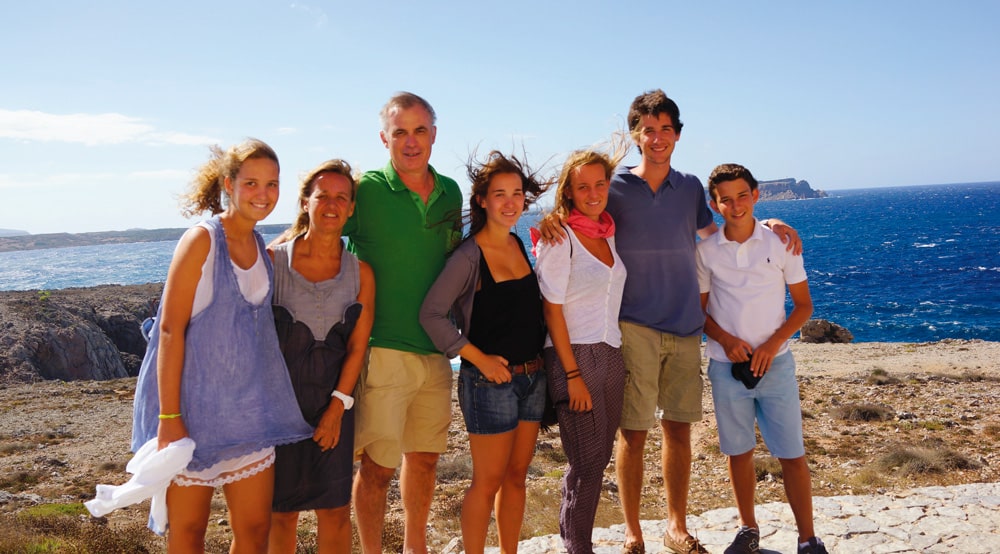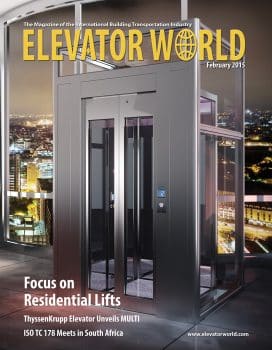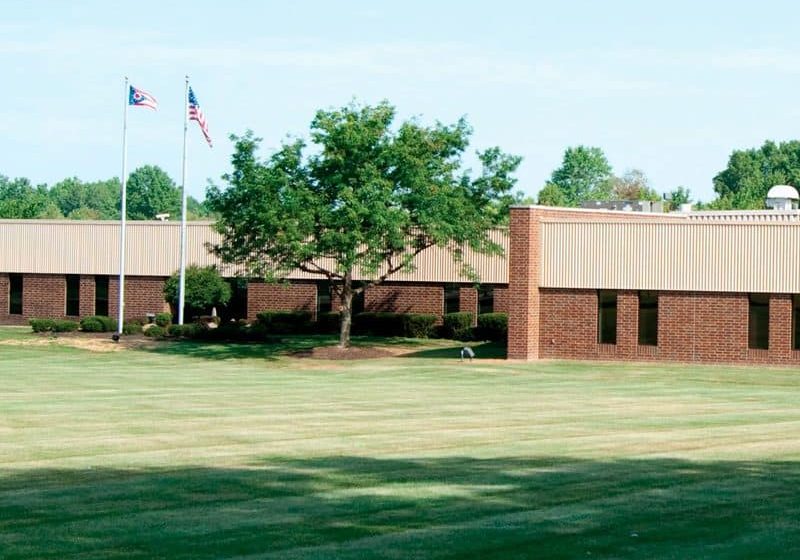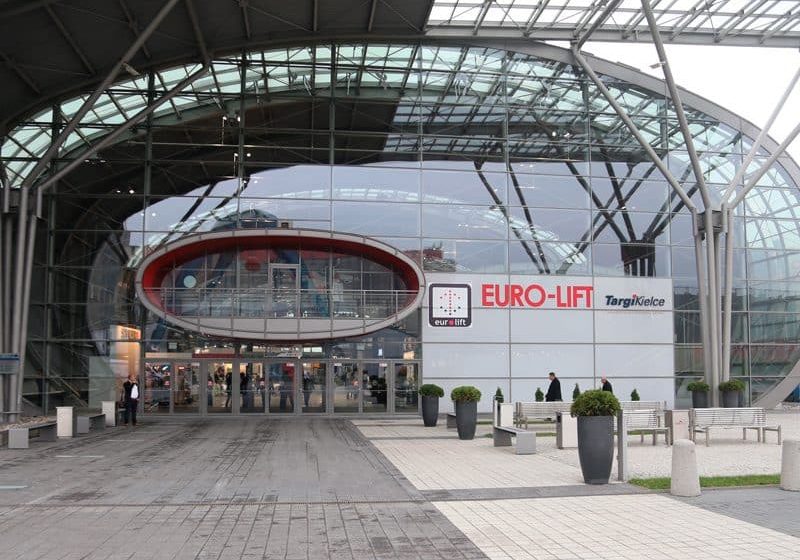Staying Connected
Feb 1, 2015

Francisco Ginot, CEO of elevator emergency-communications firm MERak, remains enthralled with the fast-paced world of technology.
As a child growing up in coastal Mataró, Spain, Francisco Ginot loved to play with lights and electronics in the family home to create different lighting effects. As he fiddled with a 220-V plug and wall outlet, things would occasionally go wrong, resulting in a broken fuse box, temporary darkness and annoyed parents. Although he would never dream of allowing his own children to play in such a way, Ginot believes his early fascination with light and electricity was a harbinger of his future, which included working as an engineer for both microelectronics and radio-communications firms, as well as a radio-communications specialist for the 1992 Summer Olympic Games in Barcelona. “I think electronics as a vocation was in my genetics,” he says. Today, he is CEO and owner of elevator emergency-communications provider MERak Telecom & Systems SL, headquartered in Barcelona.
Ginot laid the foundation for his career with a solid education. He earned an engineering degree from Catalonia Polytechnic University in Barcelona, augmenting that with a post-degree diploma in Business Administration from the IESE Business School at the University of Navarra in Barcelona Campus. As a fresh graduate, he worked for several years as a product engineer for AT&T Microelectronics Spain, then as a radio-frequency engineer for a Spanish company specializing in civil and military projects.
Becoming a manager of radio communications for the Olympic Games was a career-building experience. He worked under Jórdi Lopez Benasat, whom he describes as an important mentor. Ginot states: “He is a very positive person who was used to managing big telecommunications projects for the administration of the city of Barcelona. He taught me some very good management skills.” Benasat would later facilitate Ginot’s purchase of MERak.
It was in 2002 Ginot became an entrepreneur, founding software development company Data Trunk, which now provides support services to MERak. He says when he first became a part of the elevator industry, he was amazed by its magnitude. More than a decade later, he remains inspired and challenged by the industry, or rather, a pair of industries: vertical transportation and technology. It can be a balancing act, he said, to reconcile the two. He observes:
“We now live in a connected world, and, of course, elevators are becoming a clear target of the Internet of Things (IoT), the interconnection of uniquely identifiable embedded computing devices within the existing Internet infrastructure. In fact, MERak is an information and communications technology (ICT) company with non-ICT customers. We have different speeds and, sometimes, this is a problem, especially with small and medium-sized customers. Communications involves abstract concepts in a world of mechanics. What’s more, in the past, elevators were isolated machines. Now, in a connected world, we need to adopt standards to make interoperability among different providers possible to be efficient managing a fleet of thousands of different brands of elevators remotely.”
The ever-changing world of technology doesn’t allow Ginot to rest on his laurels, and he wouldn’t have it any other way. He loves his profession and says he enjoys being presented with a constant stream of challenges.
Developing an optimized dual-tone multi-frequency (DTMF) signaling system for remote programming of elevators is among the challenges Ginot is facing. He observes the DTMF signaling the industry uses now is effective with landlines but fails to transmit properly over cellular networks. “A strong challenge is to develop an optimized DTMF detector for cellular calls,” he states. “This will probably be achieved when Internet Protocol (IP) technology arrives to all elevators over cable or Long-Term Evolution networks.
Ginot is a member of the Institute of Electrical and Electronics Engineers and IESE alumni association. He makes it a point to attend Interlift in Augsburg, Germany, every two years, and also this year, plans to attend Asansör Istanbul in Turkey in March. He observes trade shows have evolved from industry professionals coming to learn about the newest technology to more of a business networking opportunity – a place to “meet face to face and close deals.” He believes event organizers today should provide additional Internet tools, such as social networks set up ahead of time to facilitate participants’ preparations.
A firm believer in hard work as the key to success, Ginot also finds time to enjoy life away from work. He and his wife just celebrated their 25th wedding anniversary, and stay busy with their three girls and two boys, ages 14-22. The last book he read was the biography Steve Jobs by Walter Isaacson.
When he has time, Ginot volunteers at the younger children’s school. He also enjoys bicycling, which he took up after years of playing soccer took a toll on his knees. When physically able, he enjoys a few days of skiing, and the family has several favorite vacation spots. “Every summer, I go to Menorca (an island in the Balearic Sea between Spain and Italy), where I have a boat and go sailing with my family and friends in an exceptionally beautiful landscape, which is not overcrowded,” he states.
With no plans to retire, Ginot says he continues to learn and evolve. Looking back over his career thus far, he wishes he would have listened more and spoken less, since listening results in learning. Among those in the industry he regards as a good listener and role model is Lars Gustafsson, founder of the award-winning Swedish emergency elevator phone company SafeLine. “We share a passion for our job, which is communications engineering,” Ginot says.
As companies strive for continued growth in difficult times, Ginot sees opportunity. He intends to be a strong proponent of the IoT as it relates to vertical transportation. “We are trying to push the change in order to make the online elevator concept using IP and machine-to-machine technology possible,” he states. “Big companies have resources to implement these technologies, but small and medium-sized ones, not so much. We think this is a good business opportunity, in spite of the present recession.”
Going forward, MERak intends to help customers trim nonessential expenses and develop new, budget-friendly products. “The idea is not to become stagnant by waiting,” he states. “We are the ones who have to make it happen.”
Get more of Elevator World. Sign up for our free e-newsletter.









